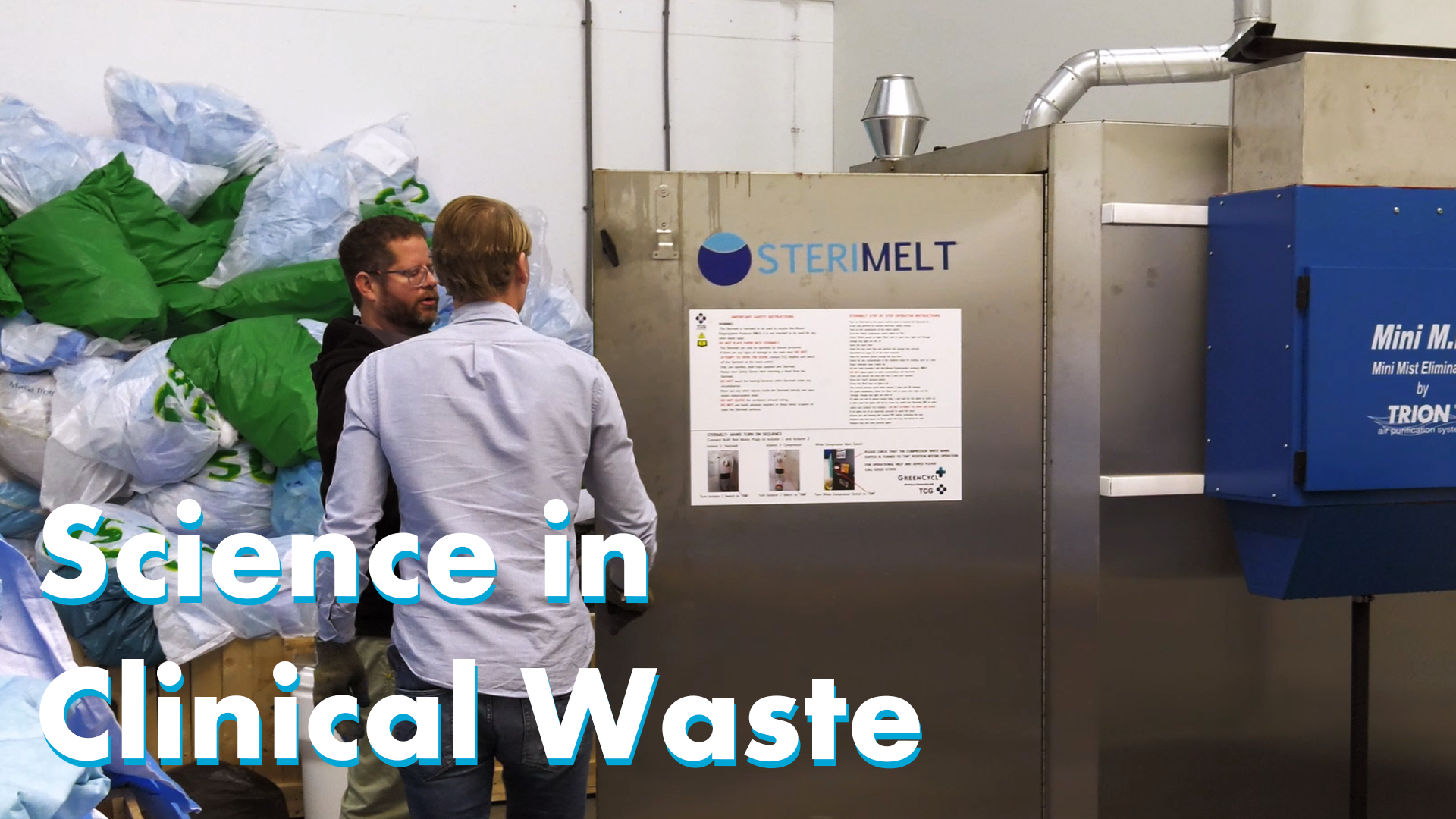Plastics, electronics, and metals – waste from hospitals has many faces but the processing is mostly the same: incineration. Two researchers are trying to turn this tide.
The FieldLab develops recycling units for clinical waste at hospitals. (Still: TU Delft TV)
Camera & Editing: Yoshi Verspaget, Production: Roel Breure, Director: Jos Wassink
PhD student Bart van Straten at the Faculty of Mechanical, Maritime and Materials Engineering (3mE) and his brother head Van Straten Medical, their family surgical instruments business, which mostly repairs and remanufactures surgical instruments. He decided to dedicate his time to researching the reprocessing of surgical waste and discussed this with Dr Tim Horeman (Biomedical Engineering at the 3mE Faculty) – now his PhD supervisor. Together they have set up a line of research that focusses on circularity and sustainability.
Their work has led to establishing a FieldLab near Utrecht where medical waste is processed. Plastic sheets and protective clothing are melted for re-use. Metal tools are collected, sterilised and sold as raw materials.
A complex disposable instrument like a EUR 500 stapler contains plastics, rubber, metals, and electronics. In an ongoing test, staplers are dismantled and its parts tested and sent back to the manufacturer in the USA to be re-used.
In their perfect world, every future hospital will have its own recycling plant in which what is now regarded as medical waste will be treated as the raw materials for the next surgical tools. The first steps towards this goal have been taken in the Science in Waste FieldLab.
Also read:
- Meet the medical waste busters (Delta, 01 March 2021)
- Masks reusable after sterilisation (Delta, 26 March 2020)
TU Delft TV / TU Delft TV is a collaboration between Delta and the Science Centre. The crew consists of TU Delft students.



Comments are closed.